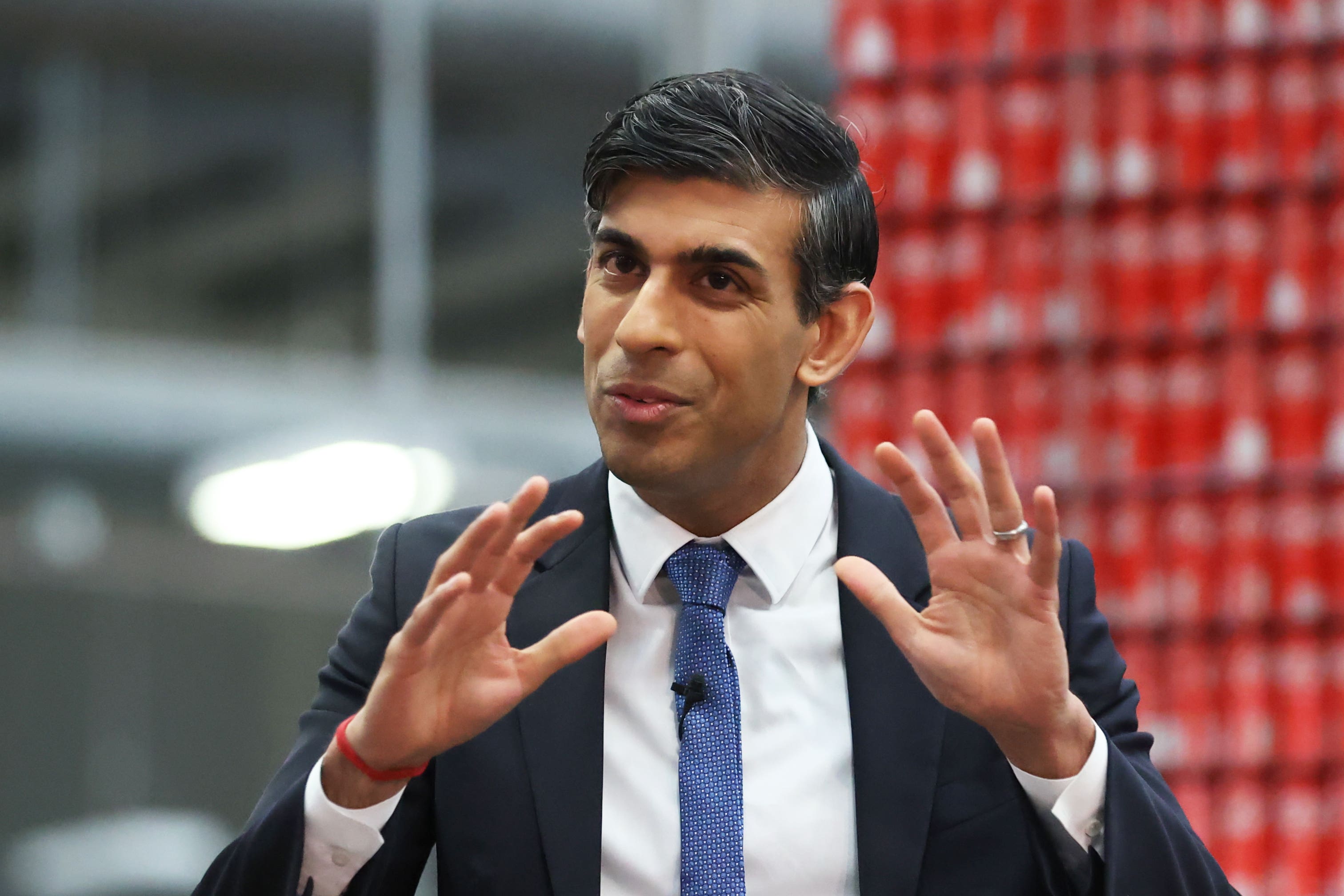
Rishi Sunak said his post-Brexit deal meant Northern Ireland was the world’s “most exciting economic zone” with access to both EU and UK markets.
Critics online were swift to point out that the entire UK had full access to the EU’s “exciting” single market before Brexit.
On a visit to Lisburn’s Coca-Cola factory, the PM said: “Northern Ireland is in the unbelievably special position, a unique position in the entire world, European continent.”
He said the province was now had “privileged access, not just to the UK home market, which is enormous, but also the EU single market”.
Mr Sunak told the audience of workers: “Nobody else has that. No one. Only you guys – only here, and that is the prize.”
But several commentators pointed out that the PM was pointing out the disadvantages of Brexit, since Great Britain had lost access to the single market by quitting the EU.
Labour MP Chris Bryant tweeted: “Sunak says how wonderful it is that Northern Ireland gets privileged access to the single market. I’d like that for the rest of the UK.”
Anti-Brexit campaigner Femi Oluwole tweeted: “Rishi Sunak just spent 2 minutes boasting about how Northern Ireland is the “most exciting investment zone on the planet” because it has full access to the UK and EU market. You know... like we did before Brexit!”
Durham University law professor Thom Brooks added: “He says its ‘very special position’ makes it ‘incredibly attractive’. Where have I heard this before?”
It follows similar criticism for Northern Ireland minister Steve Baker, who told the BBC: “What an extraordinary opportunity for Northern Ireland: dual access to both markets”.
Oxford foreign policy expert Dr Jennifer Cassidy tweeted: “You mean the “extraordinary opportunity” that was available to the ENTIRE UK before Brexit. That opportunity?”
Asked whether Mr Sunak would like the whole of the UK to access the EU single market, his official spokesman said: “No. The people of the UK made a decision in 2016 and we are seeing the benefits of that decision.”

Under the Windsor deal, anything destined for Northern Ireland will travel there as part of a “green lane”, with significantly fewer checks. Anything that could cross the border and enter the EU’s single market will travel through a separate “red lane”.
Other changes will allow the UK government to set VAT and excise changes for Northern Ireland, rather than the EU. While some EU goods rules will remain in the province, the Sunak government says it means less than 3 per cent of the Brussels rulebook applies.
Under a new arrangement dubbed the “Stormont brake”, Northern Irish politicians get the power to block any unwelcome new EU rules on goods. It requires 30 MLAs from two parties can secure a successful vote. The UK government would then have to support the veto.
However, the European Court of Justice had been final arbitrator of any EU law issues in the region, given the fact that Northern Ireland essentially remains within the single market for goods.
Mr Sunak insisted that his new Brexit deal addressed the concerns of unionists despite acknowledging “small and limited” role for European Union law and its court.
“As long as the people of Northern Ireland consent to that arrangement, then that’s why there is a small and limited role for EU law in Northern Ireland,” the PM told BBC Radio 4’s Today programme.
”What we are talking about is less than 3% of EU laws that apply in Northern Ireland and they apply very specifically for the purpose that I just mentioned.”
The Stormont brake means that “if there’s a new law that’s going to significantly impact people’s lives coming from the EU, they will be able to block it”, he added.







